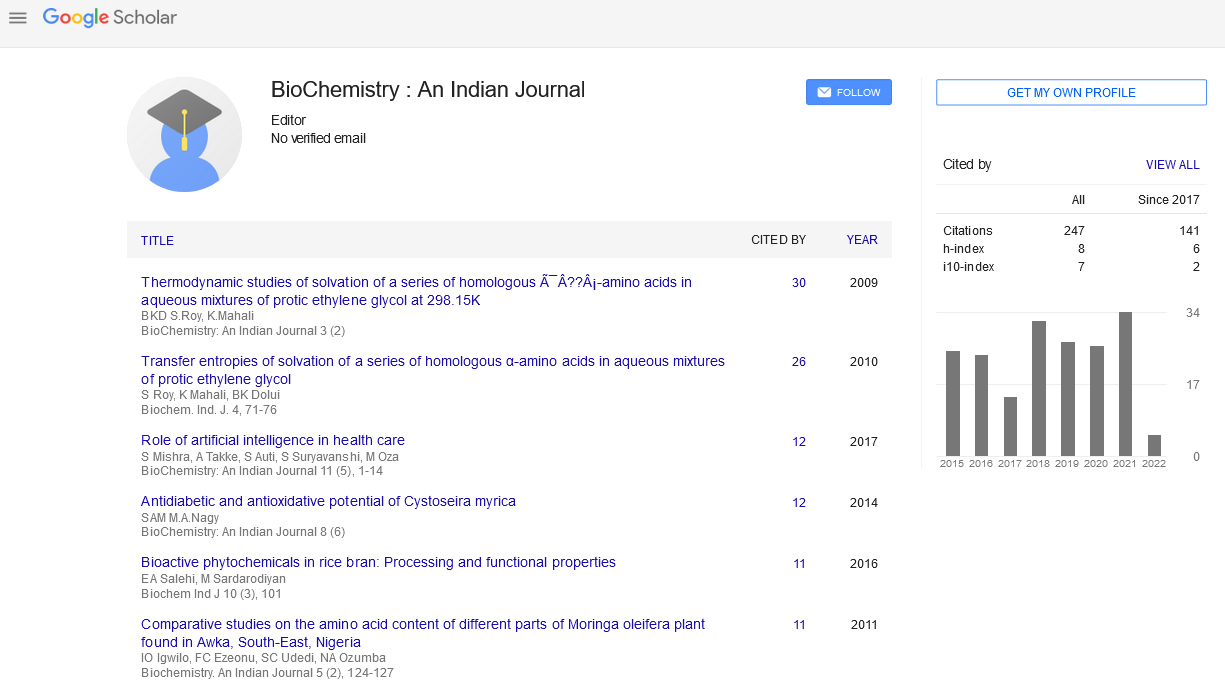Abstract
Evaluation of plasma vitamin C concentration in age related cataract patients
Author(s): Jaskiran Kaur, Sahiba Kukreja, Kawalinder Girgla, Amandeep KaurCataract is a vision-impairing disease characterized by gradual, progressive thickening of the lens. It is one of the leading causes of blindness in the world today. Oxidative agents like ultraviolet (UV) rays are one of the most important causes of cataract. Dietary antioxidant vitamins, in particular vitamin C (Ascorbic acid), can play a role in preventing the onset or progression of age-related cataract. The aim of the study was to find correlation between blood oxidative stressmarkermalondialdehyde (MDA) and ascorbate (vitamin c) levels in cataractous patients. The patients were subdivided in 3 groups according to age criteria. Group I- 45-55 years, Group II-56-65 years and Group III- 66-75 years. 50 age -matched healthy subjects served as controls. Plasma ascorbic acid level was measured by a colorimetric method using acid phosphotungstate. The mean plasma ascorbic acid level in 3 test groupswas 0.69±0.08, 0.70±0.08 and 0.65±0.10 mg/dl respectively, and in control group was 0.86±0.07, 0.84±0.08 and 0.86±1.10 mg/dl respectively. The results were statistically analyzed using student‘t’ test. The decrease in Plasma ascorbic acid level was highly significant in group II and III as compared to control group (p<0.001). This study revealed that plasma vitamin C level in patients with senile cataract was lower than normal individuals. The concentration of vitamin Cwas not related to the type of cataract. Aging was associated with a reduction in plasma ascorbic acid levels. Elderly patients should be advised to take fresh vegetables and fruits rich in vitamin C or other supplements to improve the plasma levels.

